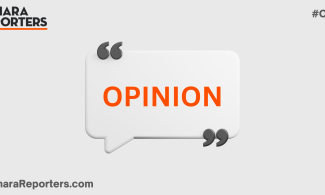
Early this morning, I read Farooq Kperogi's 3rd June piece titled "President Tinubu and Dangers of Subsidy Removal"
His is an interesting argument. He posits that PMS subsidy should remain. That government should not pass the cost of its inefficiencies and corruption to the people. Government should clean up its act, maximize funds, and maintain some form of subsidy.
In seeking to advance his argument, he makes some wrong assumptions. For instance he says...
_"At N550 per liter, the price of petrol is now officially lower in many states in the US than it is in Nigeria. Nigerians are paying nearly the equivalent of $4.60 per gallon of petrol (using the official exchange rate). If we use the black market exchange rate, its much higher than that"_
This is simply faulty arithmetic. If you use black market rates, it doesn't increase like he said, it actually decreases. So @ N750, Nigerians are paying $2.93 per gallon of PMS. Thats lower than average prices across the US. (And of course, for this particular calculation, its the black market rate you should use because ordinary Nigerians buying fuel have no access to official CBN forex rates)
That notwithstanding, his points generally make sense for the particular route he has chosen - that PMS subsidy should remain. Moreso, for the sake of the suffering Nigerian masses.
I share his concern for 200+ million Nigerians - especially the 133 million living in multidimensional poverty. But I fear that his is an idealistic but impractical route.
For Farooq's solutions to work, government has to clean up government. Now thats something I think is near impossible at this time. It's something we have been trying to do for the past 63 years. And its something we've been failing to achieve for these past 63 years. I don't see any magic wand that will suddenly change it now. Moreso in the short to mid term.
As an example, government cleaning up government will include tight control of our porous borders.
Because if you retain subsidy and our PMS is still much cheaper than the N896/litre price of PMS in Cameroun for instance, you may require to build a wall on our borders and man that wall every 100 or so meters, to stop smugglers from moving N195/litre petrol to sell at N896/litre in Cameroun. Ditto if the smuggling happens by sea. The attraction of this arbitrage opportunity is just too much. Its akin to minting money. It will almost be impossible to stop majority of your subsidized N195 PMS from finding its way across the borders to where it will be sold at 4 times the price.
So, who wants to volunteer to hold his breath while the Nigerian government tightens up our porous borders with Cameroun, Benin, Chad and Nigeria? Any takers? I think not.
Farooq's words sound all nice and politically correct. But its largely near impossible to implement in our current circumstances.
In 2022, Nigeria paid $10 Billion in PMS subsidies. Same year, our national net dollar income from sale of crude oil was not too far off that amount. (By the way, if you go beyond costs, taxes and partner profit share to factor in our Carry Agreements and Swap liabilities, then our national net inflow from crude oil in 2022 was actually zero!)
How is this sustainable?
So, fuel subsidy needs to go. Our current circumstances cannot support it.
What we need to concentrate on now is how to cushion the resultant effects - especially on the most vulnerable.
The most implementable solutions in the short and medium term remain:
1. Deploying strategies to reduce prices of basic items that poor Nigerians regularly spend on (like transportation, health, education, food, etc)
2. Improving inflow to poor Nigerians by:
2i. Increasing minimum wage (Nigeria is currently home to the lowest minimum wage on earth)
2ii. Supporting Enterprise Development (particularly for MSMEs who generate half our GDP)
2iii. Facilitating the creation and development of new local economies and industries in partnership with the private sector and the development sector.
All these are not rocket science. They are very achievable, even in the short to mid term.
But of course....with the right hands on deck.
- _Emeka Orjih, a Wharton MBA, and a Finance & Development Strategist, was former Assistant Country Director of the US government agency, USADF (United States African Development Foundation)_